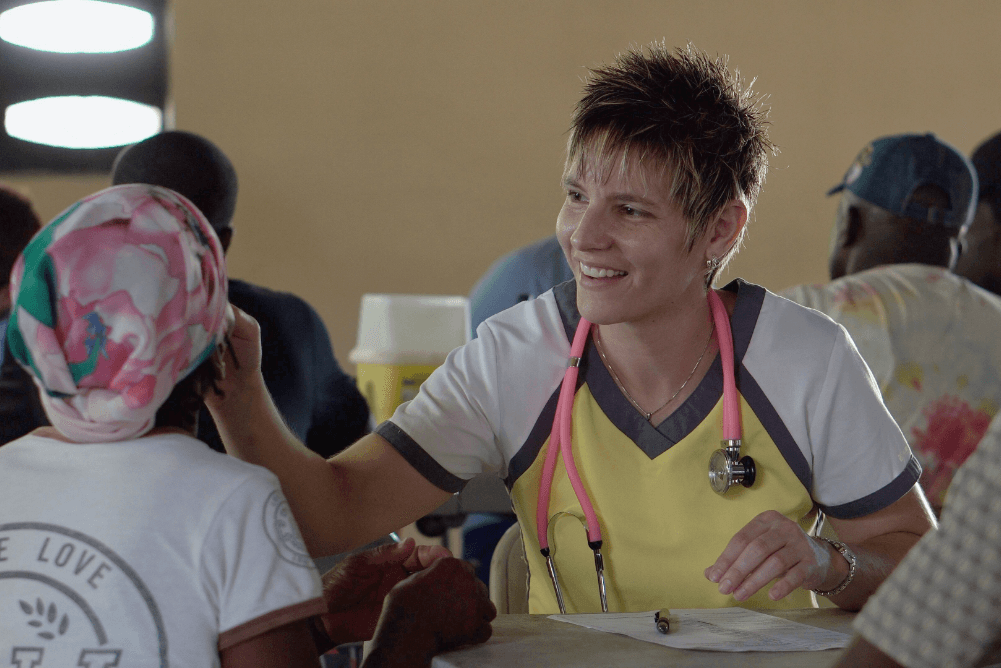Nursing Process: Step-by-Step Guide for Nursing Students
In this blog, you will see what nursing is, its career path, a college list and a simple step-by-step guide to the nursing process.

Nurses are like at the heart of healthcare. Their work is to provide assistance to doctors, give patients consolation and attention, and ensure that treatments are given correctly. So basically, nursing is about treating patients, responsibility, and the knowledge needed to make a real difference in their lives.
The Nursing Process is a simple method that helps nurses stay organized, think clearly, and provide safe care step-by-step. For students, learning is very important because it prepares them to handle real patients in real-life practice.
What is Nursing?
Definition:
Nursing is a field of medicine which focuses on keeping people healthy and caring for people of all ages. It goes beyond just treating diseases and helps patients with their physical, mental, and social health. Nursing is all about providing safe and complete care for patients by combining medical knowledge, clinical skills, and compassion.
Nursing is a branch of medicine that focuses on keeping people healthy and caring for people of every age. Also, it helps patients in recovering their physical, mental, and social health in addition to curing illnesses. Moreover, the main goal of nursing is to combine clinical experience, medical knowledge, and compassion to provide patients with safe, thorough treatment.
For many people, a nurse became the first reassuring presence when entering a hospital and the last comforting face before leaving. That constant presence made their role one of the most essential in the entire healthcare system.
Types of nursing and its Duration in India:
B.Sc. Nursing – 4 years.
GNM (General Nursing & Midwifery) – 3 years.
Post Basic B.Sc. Nursing – 2 years.
M.Sc. Nursing – 2 years (after B.Sc. Nursing).
Eligibility (B.Sc. Nursing):
To get into B.Sc. Nursing course candidates should have completed their 12th standard with Physics, Chemistry, Biology, and English and with a minimum of 45–50% marks.
Why Nursing?
The candidate can pursue this course because of:
Job security and high demand.
Opportunity to specialise in various areas.
A noble career which combines science with service.
Top Nursing Colleges in India:
Many government and private colleges offer nursing courses to students in India are:
Government Colleges
| College | Location | Fees (approx.) |
| AIIMS College of Nursing | New Delhi | Nominal govt. fees |
| JIPMER College of Nursing | Puducherry | ₹5,000/year |
| PGIMER College of Nursing | Chandigarh | Subsidized |
| BHU College of Nursing | Varanasi | Affordable govt. fees |
| AFMC College of Nursing | Pune | Regulated fees |
Private Colleges
| College | Location | Fees (approx.) |
| CMC College of Nursing | Vellore | As per CMC norms |
| Manipal College of Nursing | Karnataka | ₹1.4–1.6 L per year |
| SRM College of Nursing | Tamil Nadu | ₹2 L per year |
| Symbiosis College of Nursing | Pune | ₹4.2 L per year |
| D.Y. Patil College of Nursing | Pune | ₹1.2 L per year |
What Is the Nursing Process?
Nursing process definition: It is a method that nurses use in order to treat patient by the following steps such as, planning, assessment, implementation, and evaluation. By following this strategy, nurses make sure that every patient receives personalized treatment on the basis of evidence and made according to their specific health needs and treatment goals
Furthermore, the nursing process is not just a checklist, but rather it is a flexible method that changes according to the need of patients. Moreover, nurses on a daily basis check, revise, and update the plan whenever new information is available. This ability to adjust is one reason why the nursing process is important. Moreover, its process will ensure that patients receive the right care when they need it.
Purpose of Nursing Process
The purpose of the nursing process is to provide a structured and systematic approach to patient care, by helping in enhancing safety, quality, and overall health outcomes. In addition, it allows nurses to:
- Identify actual or potential health issues.
- Develop personalised care plans.
- Coordinate with other healthcare teams for the patient’s treatment.
- Check the patient’s progress and adjust the treatment plan whenever it is needed.
In simple terms, this method basically will help them to create a plan of action based on the needs of the patient. This will ensure that care is both complete and patient-focused. To learn about detailed nursing process steps, visit docthub.
The Five Nursing Process Steps:
Firstly, every candidate pursuing nursing must be proficient in these nursing process steps.
The Five Nursing Process Steps are made up of five well-structured steps, each of which is designed to guide nurses in providing effective care to the patient.
1. Assessment
The first step is the assessment of the patient, that is collection of all the necessary information about the patient’s physical, emotional, psychological, and social health, and is conducted thoroughly. After that, all this data is gathered by observing patients’ medical history, counselling, and performing the required diagnostic tests.
Example of a nursing process assessment: A patient comes with the complaint of chest pain. So, when the nurse checks you out, she will check your vital signs, oxygen saturation, and ask you how long and how bad the pain is.
2. Diagnosis
In the next step, a doctor makes a provisional diagnosis to find out what disease or condition the patient has. On the other hand, a nursing diagnosis looks at how the patient is actually reacting to that condition and, from the assessment results, they make useful clinical decisions.
Example of a nursing process diagnosis: In the diagnosis of “heart attack,” the nurse may document “acute pain related to reduced oxygen supply.”
3. Planning
In this step, the nurse will make a plan by coordinating with healthcare teams by setting SMART goals, which is Specific, Measurable, Achievable, Relevant, and Time-bound. These goals will act like a map for giving a proper direction to the treatment which a patient receives. The plan is designed not only to address urgent concerns but also to promote long-term recovery and overall well-being.
Example of a nursing process planning:
Goal – “The patient will report a pain level of less than 3 out of 10 within the next 24 hours after the treatment given according to the planning.”
4. Implementation
Implementation means “doing”. In this step of the Nursing Process, the nurse will implement their plan into action by carrying out the interventions they planned. This plan includes giving medications, educating the patient on self-care, or working together with other healthcare professionals to ensure the best outcomes.
There are three major types of implementations in the nursing process:
Independent interventions
Independent interventions: Independent means not dependent on anyone. The name itself explains that the actions a nurse can perform independently, without any healthcare professional's involvement. For example, helping a patient change their position to prevent bedsores.
Dependent interventions: In the dependent interventions, nurse strictly require a physician’s permission or advise, such as giving prescribed medicines or carrying out specific treatments.
Collaborative interventions: These include working together with other healthcare professionals, like physiotherapists, dietitians, or social workers, to give the patient complete care.
5. Evaluation
The last step of this process is evaluation, which means seeing if the patient’s goals have actually been achieved or not. And if the expected outcomes are not achieved, then the plan is reviewed again and adjusted according to the patient’s needs.
Nursing process example: After pain management interventions, the patient reports pain reduced to 2/10, meeting the planned goal.
Difference Between Intervention and Implementation in Nursing Process
Many students confuse interventions with implementation, but there is a subtle difference.
Intervention refers to the planned actions designed to achieve patient goals (e.g., providing oxygen therapy).
Implementation is the actual execution of those interventions in real clinical settings.
In other words, interventions are the planned actions, while implementation is actually carrying them out in practice. Knowing the difference between intervention and implementation in the nursing process helps nurses stay clear and organised when developing or applying care plans.
Nursing Process Examples in real-world clinical practice:
For students, seeing real nursing process examples makes learning easier. Let’s look at one:
- Assessment: Patient reports difficulty sleeping and fatigue.
- Diagnosis: Sleep pattern disturbance related to stress.
- Planning: Goal – “Patient will sleep at least six hours at night within one week.”
- Implementation: Teach relaxation techniques, reduce nighttime disturbances, and encourage journaling.
- Evaluation: Patient reports improved sleep, averaging six hours nightly.
These nursing process examples show how theoretical understanding is applied in real-world settings.
Common Challenges for Students
There are many challenges student faces even after clearly understanding of the nursing process steps. Below listed are some common challenges a student faces:
Overlapping data: Deciding what information is pertinent and what is not.
Time management: Managing the needed documentation along with patient care.
Evaluation challenges: Assessing progress when goals are ill-defined.
Planning confusion: Struggling with the formulation of SMART goals.
Students can be expected to face the challenges above, and with practice, attention to detail, learning from mentors, and proper documentation, students can strengthen their skills over time.
Career options and average monthly salary upon completion of Nursing
After learning about the role and step-by-step guide to the nursing process, here are career options after completion of this course and their average salary per month.
| Role | Salary (per month in ₹) |
| Nurse | ₹18,000 – ₹40,000 |
| Govt. Nursing Officer | ₹65,000 – ₹75,000 |
| Nursing Specialist (ICU, OT, Oncology) | ₹40,000 – ₹80,000+ |
| Tutor at nursing college | ₹30,000 – ₹60,000 |
| Abroad (UK/US/Canada) | ₹1–3 L/month |
FAQs
Q1. What is the nursing process?
A. nursing process is a five-step method for the betterment of patient care. The steps include Assessment, Diagnosis, Planning, Implementation, and Evaluation.
Q2. Why is the nursing process important for nursing students?
A. The nursing process is important because it teaches students about how to think critically, stay organised, and provide safe, effective care.
Q3. What are the five steps of the nursing process?
A. The five steps of the nursing process are Assessment, Diagnosis, Planning, Implementation, and Evaluation.
Q4. How do nursing students use the nursing process in clinical practice?
A. By applying the nursing process steps in making care plans, treating patients, and documenting outcomes.
Q5. What are common challenges nursing students face when applying the nursing process?
A. The common challenges that nursing students face when they apply the nursing process are:
- Collecting complete patient data.
- Confusing the difference between intervention and implementation in the nursing process.
- Writing clear goals.
- Time management during duties.







